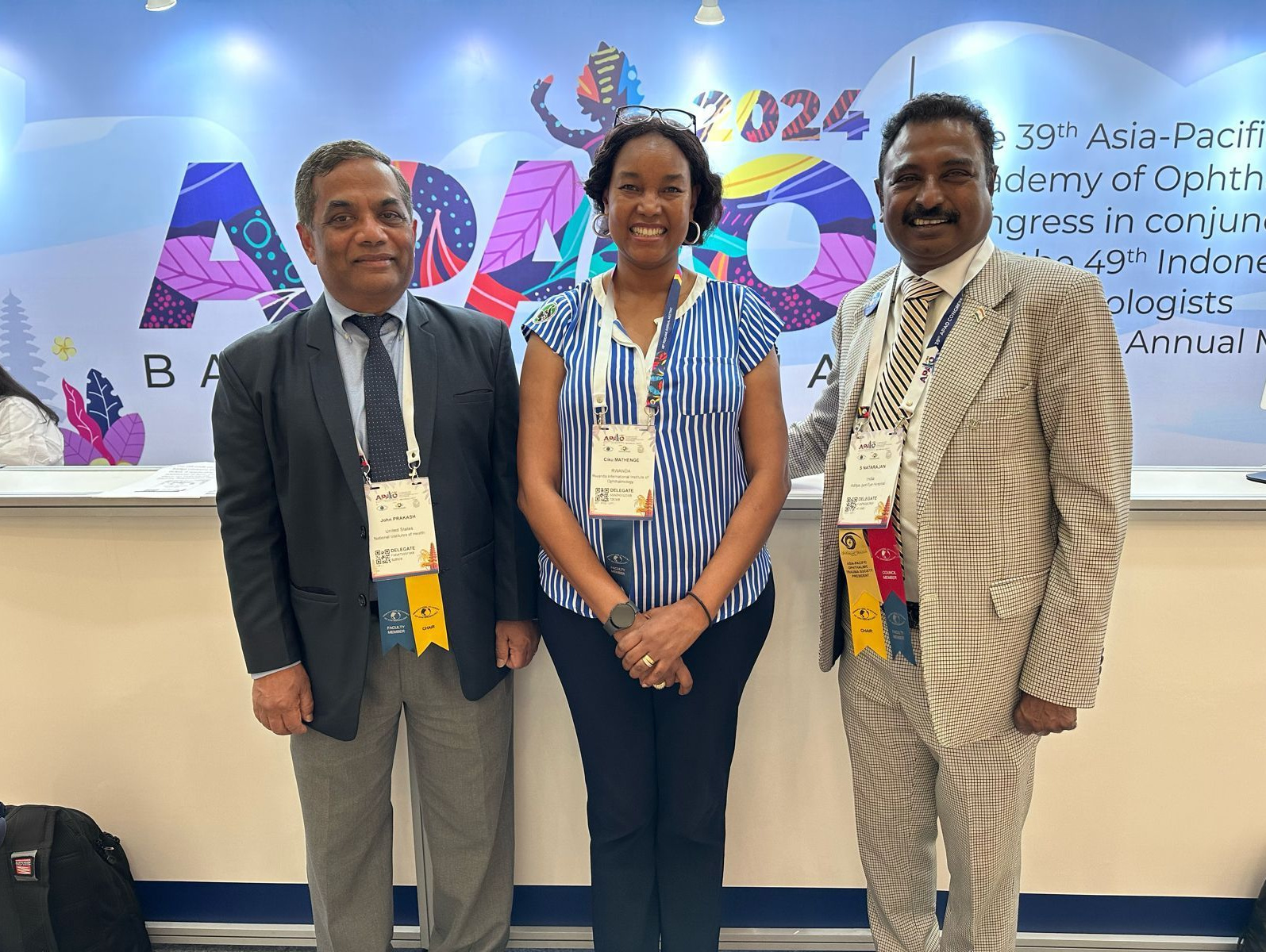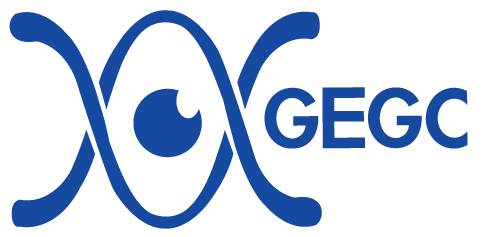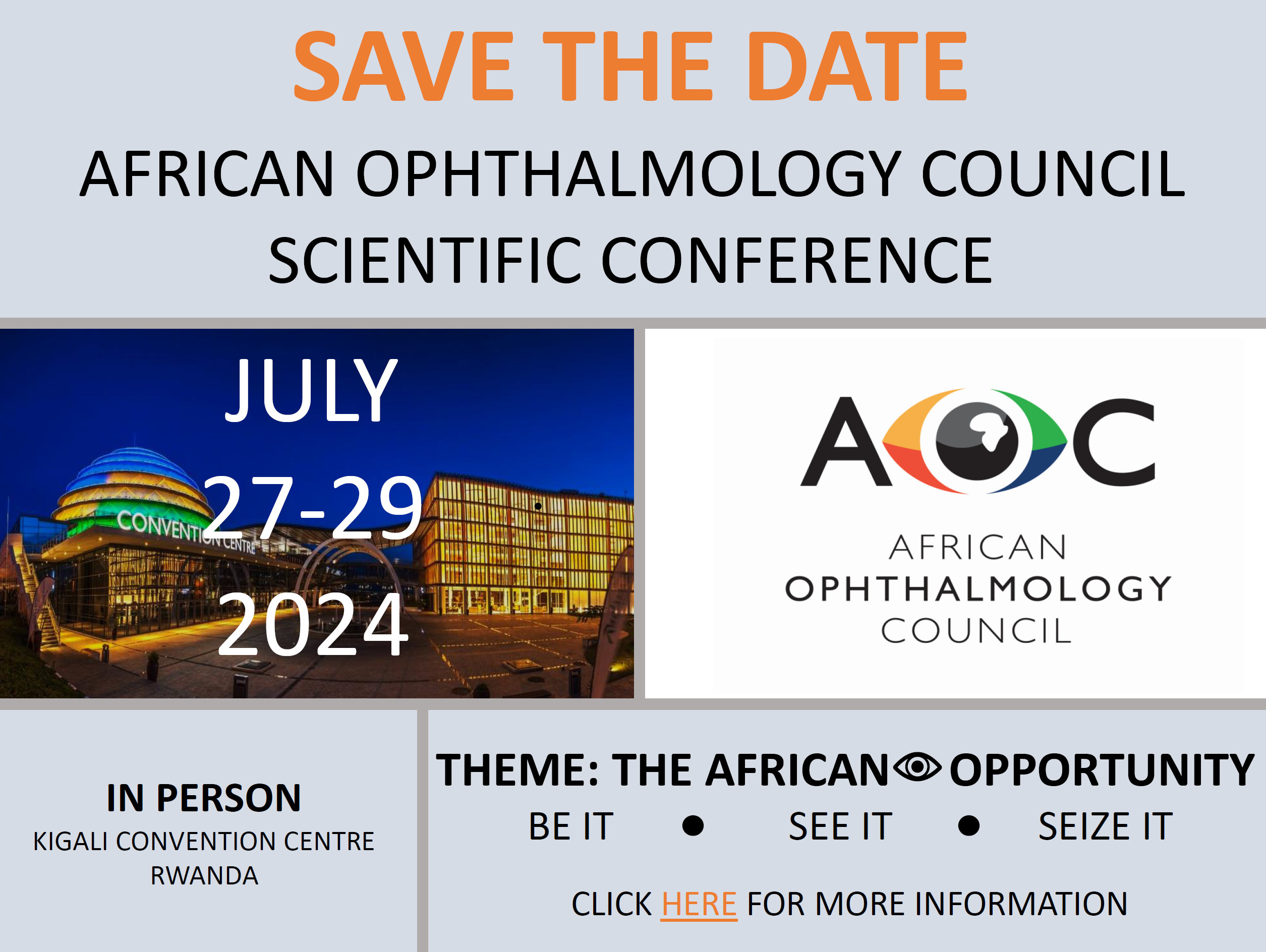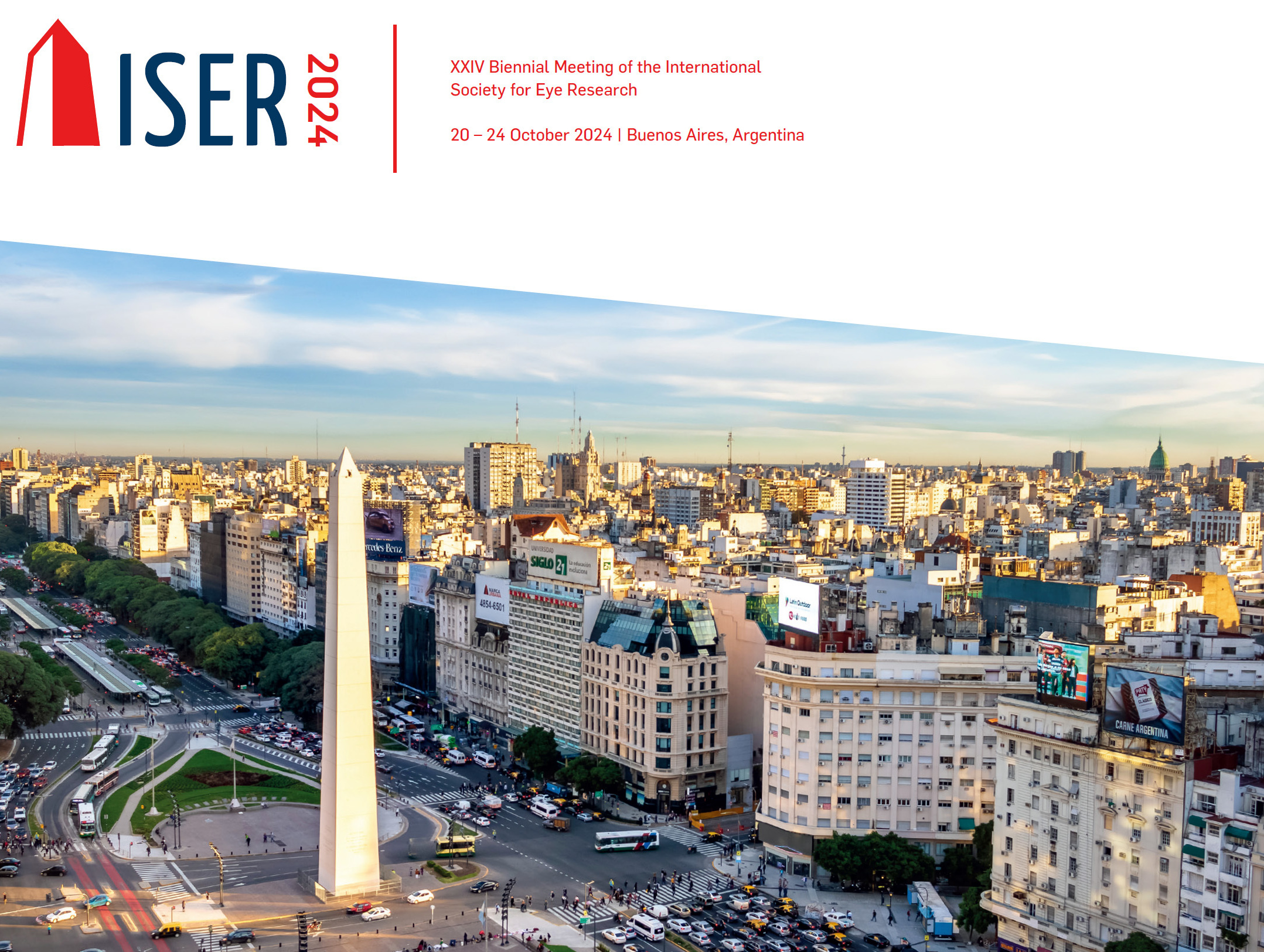
216 Members from 38 Countries including Asia, Africa, Central and South America

African Ophthalmology Council (AOC) - GEGC Collaboration
The meeting between the Global Eye Genetics Consortium (GEGC) and the Chairman of the African Ophthalmological Council (AOC) was a pivotal moment in fostering future collaborations to advance eye health research and genetic studies. The gathering took place on 23rd February 2024, during the 39th Asia Pacific Academy of Ophthalmology Meeting in Bali. Representatives from both organizations came together to discuss shared goals and potential areas of cooperation. GEGC was represented by Dr Gyan “John” Prakash from NEI, USA and Prof S Natarajan from Aditya Jyot Eye Hospital, India. Dr Ciku Mathenge, Head of Rwanda International Institute of Ophthalmology, and treasurer of the AOC, participated in the meeting from the AOC. This meeting was a continuation of the efforts by the GEGC team to establish collaborations in Africa. Just a week before this in-person meeting, an online meeting was held between the GEGC team (Dr John Prakash, Dr Takeshi Iwata (NHO TMC, Japan), Dr Rob Hufnagel (NEI, USA), Dr Shailja Tibrewal (SCEH, New Delhi)) and the AOC (Lisa Roberts (Cape Town, South Africa) and Dr Ciku Mathenge (Kigali, Rwanda).
The agenda of both the meeting included discussions on the latest advancements in eye genetics research, ongoing projects, and the potential impact of collaborative efforts. GEGC representatives emphasized the importance of a global approach to understanding and addressing eye-related genetic disorders. Dr Ciku Mathenge highlighted the unique challenges and opportunities within the African context, shedding light on the diversity of eye health issues faced by the continent's population. This included considerations such as genetic variations specific to African populations, socio-economic factors influencing eye health, and the need for tailored approaches to address prevalent eye diseases.
Discussions during the meeting focused on establishing a framework for collaborative initiatives, such as joint research projects, data sharing, and capacity-building programs. They recognized the importance of inclusivity and the need to engage researchers and healthcare professionals from diverse backgrounds to ensure a comprehensive understanding of eye genetics on a global scale.
The meeting concluded with a commitment to hold a GEGC session in the upcoming AOC congress in Kigali in July this year. Dr Ciku Mathenge who is the president of the 2024 AOC congress promised to support the GEGC in their endeavours in Africa. She said that this session would serve as a blueprint for joint research efforts, resource-sharing mechanisms, and the exchange of expertise. Both parties expressed enthusiasm for the potential positive impact of this collaboration on advancing knowledge, improving diagnostics, and developing targeted treatments for eye-related genetic conditions, especially in the African context.
The meeting set the stage for a long-term partnership between the Global Eye Genetics Consortium and the African Ophthalmological Council, exemplifying the importance of international collaboration in addressing complex health challenges.






